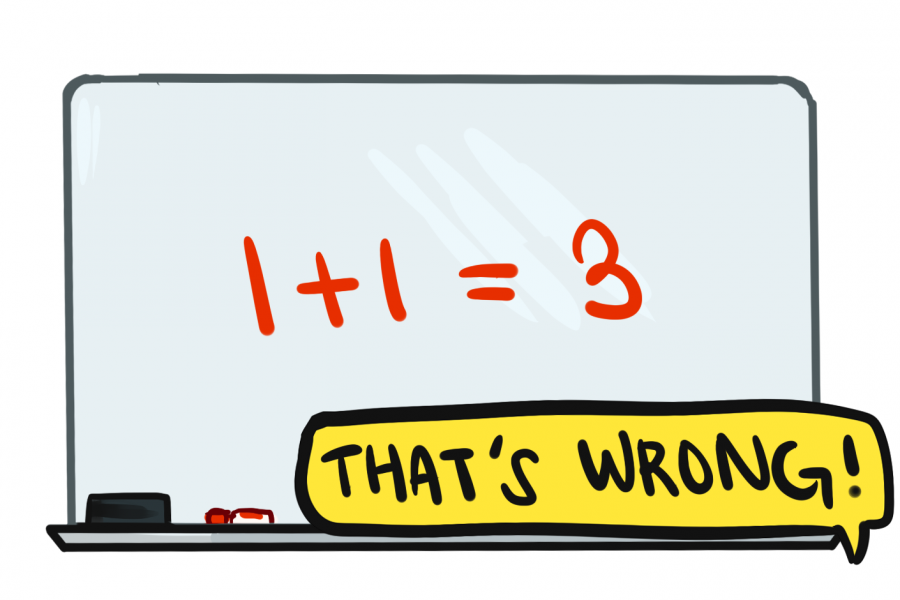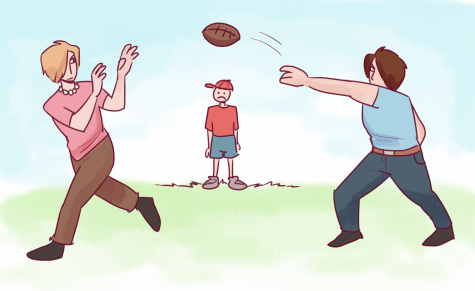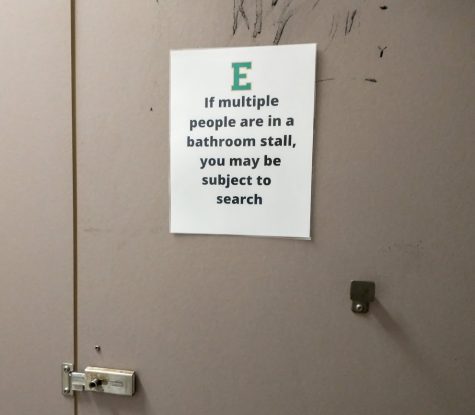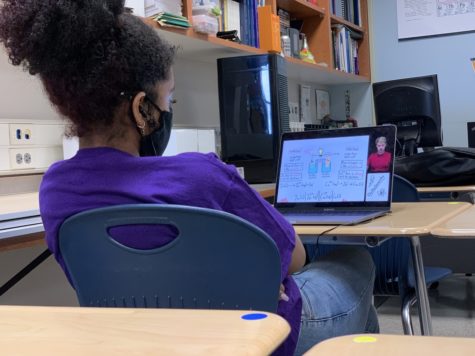The benefits of constructive criticism from student to teacher
Why students should offer more criticism before it’s too late
February 13, 2019
Zephyrus would like to mention that the faults mentioned in this article only apply to a small group of educators, but the effects of this small group may have a dramatic impact on the knowledge of many students, now and in the future.
Throughout history, there are many examples of a group or person in power suppressing those who they rule over. Famous examples of this include Richard Nixon and President Donald Trump, accompanied by their distrust of the media and attempts to quiet criticisms. Although these are extreme cases of suppression, Edina High School is approaching a standard of mindless compliance.
As a student at EHS, I have repeatedly noticed a dangerous belief among some faculty: students should not criticize their teachers. I have been told by teachers on multiple occasions to not mention any mistakes or systematic shortcomings by other teachers. Not only is this alarming at first glance because of the United States’ guarantee of free speech, but its effects are very significant. The possible consequences include worsened conditions of classes, lower quality relationships between staff and students, and a precedent that we should blindly follow everything that authority figures say.
The common argument that adults use is that if there is an issue, our first step to addressing it should be to contact that specific teacher. There are two problems with this argument: students hold a general fear of teachers giving lower grades based on biases, and communication within a group of students having the same issues with a teacher is often beneficial.
First, many students would never feel comfortable approaching their teachers with concerns regarding their actions because the response they get can be negative. Sometimes when students lightheartedly mention a teacher’s mistakes, (e.g., fixing spelling errors, mispronunciations, etc.) defensiveness or turning the critique back on the student is common. One of the most extreme examples I have seen multiple times is teachers bringing up, in front of the entire class, a student’s missing work or hinting at their low test grade when the student attempts to correct them. Because students see this strong response for a minor issue, the thought of expressing a more severe criticism such as teaching style or methods of discipline seems even more daunting.
Second, understanding that other students have the same perceptions of their teachers as yourself is both comforting and useful because it teaches how to deal with feelings and strategy for how to cope with a teacher’s behavior. When teachers have under taught a lesson, unfairly graded an assignment, or made an inappropriate comment to a student, it can be useful–or even necessary–to talk through and help other students create a plan to still achieve despite hardships. Because students have limited time and contact with other students, the only time to bond with students over common issues is during the school day.
One of the main drawbacks to the suppression of criticizing teachers is that the quality of the class is much lower. If teachers do not create an environment that fosters constructive criticism and improvement, the quality of learning will stay stagnant or decrease. I had a great example of teacher this year who wanted to improve their class for the future, and because their classroom environment was positive throughout the first semester, students felt confident to share the assignments they felt were useful and others that were not. However, some other teachers make sharing concerns a direct insult to themselves, which not only negatively affects students but likely impairs a teacher’s ability to grow and develop.
Consequently, the relationship between student and teacher is very important to the students for many reasons, including feeling comfortable participating in class, asking for help, or even just existing in the classroom without fear. I have experienced this myself when I performed poorly on an assignment and after receiving feedback, I realized that the way the teacher explained it and taught the concepts was not at all productive for other students and me. I understand that many students use this excuse when they did not prepare adequately, but I can attest that in my situation this was not the case. In this situation, I did not explain to the teacher how they could have improved the instructions for future students because I was immediately worried that any suggestions I had would ruin our relationship and make classes uncomfortable. My inability to address these concerns will only confirm that future students will continue to face unnecessary challenges in that class.
This last harmful effect is often overlooked because the repercussions last much longer than just high school: students are being taught to accept all authority blindly. Many children are trained that they should listen to anything their teachers, parents, or the government say because they are older, more responsible, and know what is best. However, it should be no surprise that this idea is entirely untrue, and it will cause issues for students later in life when they are unable to advocate for themselves. If action is not taken soon, the cycle of passivity and helplessness will only continue.
I want to take note of one step toward open communication between students and staff that occurred this year: the end-of-semester surveys that teachers were required to give. Because many of them permitted anonymous responses, many students felt comfortable telling teachers their strengths and weaknesses. And, although these surveys are positive developments, having safe face-to-face confrontation is necessary to build the societal and conversational adeptness of both students and teachers.











